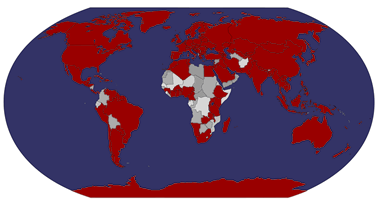Alice Springs is the second largest town in the Northern Territory of Australia. Alice Springs is situated in the geographic centre of Australia near the southern border of the Northern Territory. The site is known as Mparntwe to its traditional inhabitants, the Arrernte, who have lived in the Central Australian desert in and around what is now Alice Springs for more than 50,000 years. Alice Springs has a population of 27,481 people, which makes up 12 percent of the territory's population. Alice averages 576 metres above sea level.
There are six suburbs altogether in Alice Springs which are close to the Alice Springs town centre. Alice Springs is mostly residential.
The town of Alice Springs straddles the usually dry Todd River on the northern side of the MacDonnell Ranges. The region where Alice Springs is located is known as Central Australia, or the Red Centre, and is an arid environment consisting of several different deserts. In Alice Springs, temperatures can vary by up to 28 °C and rainfall can vary quite dramatically from year to year. In summer, the average maximum temperature is 36.6 °C, whereas in winter the average minimum temperature can be 7.5 °C.
This card shows some of the things to do in Alice Springs. They are:
Henley On Todd (top left)
Outback Ballooning (top right)
Camels at Sunset (bottom left)
Camel Cup (bottom right)
A unique sporting event, held annually, is the Henley-on-Todd Regatta, also known as the Todd River Race. It is a sand river race with bottomless boats and it remains the only dry river regatta in the world.
The annual Camel Cup is held in July at Blatherskite Park, part of the Central Australian Show Society grounds. It is a full day event featuring a series of races using camels instead of horses.

The stamp was issued in 2009 in a set of 4 stamps, representing Australian Bush Babies.


 Maroon
Maroon 










































































































































































No comments:
Post a Comment